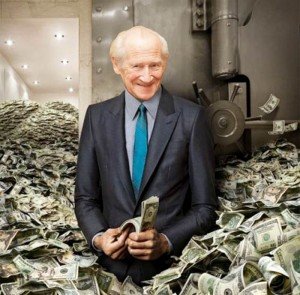Busted!
The theme song this week is “Busted,” written by Harlan Howard, and first recorded by Johnny Cash and the Carter Family. Then, in 1962, Ray Charles recorded and released a massive hit version of the song.
“I'll make a living, where I don't know, 'Cause I'm busted
Y'all know I'm broke, I ain't got no money
I'm talkin' 'bout empty pockets. Ah, forget it. Ah, to hell with it…”
For authors, we don’t start out busted, but most of us end up that way by the time we’re done. There are scammers and con men swarming around us all the time. We might as well put up a sign that says, “Here’s my money, help yourself.” There seems to be no end of ways to bilk us of our money.
Not that I’m complaining, of course. OK, maybe I am complaining. But it’s a free country, right? My book is out in paperback. I thought bookstores would sell it and the money would start to roll in.
As I see it, the money is just rolling in!
It turns out that getting your book into bookstores is not that hard. Getting your book back out of the bookstore is the difficult part. The trick is to get the book to leave the bookstore with a paying customer as quickly as possible. A book that just sits there is like a guy who goes to a bar but never orders a drink, a restaurant customer who just wants a glass of water. The book stuck to the shelf, gathering dust, is not making anyone any money.
A book that won’t sell is a penny pincher
Bookstores are looking for “sell through” – a book that comes in today and is sold tomorrow. So, after writing to the bookstores last week, I am in five bookstores already, which is pretty exciting, frankly.
No bookstore wants books that just sit there gathering dust
But here’s the tricky part. This is kind of complicated, so stick with me here. Snowflake warning: This will require some basic math skills, such as addition and subtraction. If that is too much for you, I apologize.
OK, let’s say my book is going to sell for $10 in a bookstore. That’s not the actual price, but $10 is an easy number to use. Most people understand the concept of $10. The bookstore has to buy the book from a wholesaler for $6 and mark it up to $10 in order to pay all of their costs plus a little something extra called profit. But if they are going to buy it for $6, then I have to sell it to them for less than that, $4, so I can also make a profit. But there is also the cost of shipping, handling, and tax. I probably have to get the book printed for $2.50 or else I’m going to lose money, which is not my aim in all of this.
But there is a catch. This catch is known as “Catch 22.” The bookstores won’t order the book unless it is returnable, because they have no way of knowing if anyone will buy it, or it will sit there till Hell freezes over. So, I have to make the book returnable at MY EXPENSE. Now, if they return it, I have to pay for the shipping and handling this time, and the $1.50 profit I made turns into a loss of money on each book.
Now imagine that my book is in 100 bookstores. And each bookstore buys 10 books, and none of them sell. There are 1,000 books out there times $2.50 for return shipping and handling, which adds up to a bill of $2,500 if my math is correct. Suddenly, instead of making money, I’m losing a LOT of money.
If 10,000 books were returned, then I would lose $25,000. You get the point? I could go broke quickly.
I could just go to Las Vegas and play the slot machines and the odds would be the same. I would not need to spend two years writing and then re-writing a book, working seven days a week for no pay. I could just get on a plane packed with hundreds of other mindless idiots and go gamble it away.
Writing a book is as big a gamble as going to play the slots in Las Vegas
Note: to all the mindless idiots who gamble it away, I apologize sincerely. Try writing a book instead, OK?
So, now I have to form a limited liability corporation, an LLC, as a sort of shell company to absorb any catastrophic loss. Are you with me? I wrote a book to share some of my most personal thoughts and feelings with the world. NOW I am setting up a shell company to protect myself from bankruptcy.
I did not write a book to figure out how to make $1.50 on every copy that a bookstore sells. I did not think about how much I would make on every copy because I do not CARE how much I make per book.
But the marketplace is merciless, and every seller must do what he or she must to meet every buyer. And on every transaction, the seller must make sure that there is a profit or the entire enterprise crumbles to the ground. For the matter of building and sustaining an economy is just a matter of nickels and dimes, from the greatest and most grandiose of ventures to the most humble book by a new author.
Imagine trying to get a customer’s attention in this crowded marketplace!
And so, I say to you, dear reader, don’t walk, RUN to the nearest bookstore, scream at the staff that you want to buy my book, and no other book. As a starving artist, I will be eternally grateful.
This is how I see myself, although I don’t look like I’m starving …






